April Fools' Day (sometimes called April Fool's Day or All Fools' Day) is celebrated every year on the first day of April.
Popular since the 19th century, the day is not a national holiday in any country, but it is well known in Europe and the United States, and it is celebrated as a day when people play practical jokes and hoaxes on each other. The jokes and their victims are known as "April fools".
Hoax stories may be reported by the press and other media on this day
and explained on subsequent days. The most known theory for its origin
holds that those who celebrated New Year's Day on April 1st after the implementation of the Gregorian Christian calendar in the year 1582 were called "fools" - hence the name of "April Fool's" - or "fish".
Popular since the 19th century, the day is not a national holiday in any country, but it is well known in Europe and the United States, and it is celebrated as a day when people play practical jokes and hoaxes on each other. The jokes and their victims are known as "April fools".
A variety of explanations have been given for the April Fools
tradition, many affiliated with early Christian practice. The custom of
setting aside a day for the playing of harmless pranks upon one's
neighbor is recognized everywhere. Some precursors of April Fools' Day include the festival of Hilaria, and the Medieval Feast of Fools.
In the Middle Ages, up until the late 18th century, New Year's Day was celebrated on March 25 (Feast of the Annunciation) in most European towns. In some areas of France, New Year's was a week-long holiday ending on April 1.
Many writers suggest that April Fools originated because those who
celebrated on January 1 mocked of those who celebrated on other dates. The use of January 1 as New Year's Day was common in France by the mid-16th century, and this date was adopted officially in 1564 by the Edict of Roussillon.
One belief is that the reason All Fools' Day now falls in April is
related to the 1582 implementation of the Gregorian calendar reform in
France, which shifted the marking of the arrival of the new year from a
week-long gift-giving celebration spanning March 25 to April 1 to a
single-day observance on January 1. "When some people, whether out of
stubbornness or lack of information, persisted in celebrating the new
year at the end of March, others started to mock ... with gag gifts and
other teasing gestures".
In France an April fool is called a poisson d'avril, an "April
fish," perhaps because young fish that appear in streams around this
time of the year are more easily caught than older, cagier fish.
French shops sell chocolates shaped like fish for the occasion. People try to pin paper fish on each other's backs as a joke, and the perpetrator cries out triumphantly, "April fish!"
French shops sell chocolates shaped like fish for the occasion. People try to pin paper fish on each other's backs as a joke, and the perpetrator cries out triumphantly, "April fish!"
Other accounts go back to the time of Noah and the ark, the London Public Advertiser
of March 13, 1769, published the following paragraph concerning this
theory: "The mistake of Noah sending the dove out of the ark before the
water had abated, on the first day of April, and to perpetuate the
memory of this deliverance it was thought proper, whoever forgot so
remarkable a circumstance, to punish them by sending them upon some
sleeveless errand similar to that ineffectual message upon which the
bird was sent by the patriarch."

Other accounts argue that April is the time of the year, around Easter when the passion of Jesus took place and Jesus was sent back and forth from one official to another — from Annas to Caiaphas, from Caiaphas to Pilate, and from Pilate to Herod
to be mocked and tormented, and that from this arose our present
custom, "by which we send one place to another such persons as we think
proper objects of our ridicule". The French name for an April fool (poisson d'Avril) is offered as support for this on the supposition that "poisson" is a corruption of "passion."
In Chaucer's The Canterbury Tales of (1392), the "Nun's Priest's Tale" is set Syn March bigan thritty dayes and two. Many modern scholars believe that there is a copying error in the extant manuscripts and that Chaucer actually wrote, Syn March was gon. Thus, the passage originally meant 32 days after April, i.e. 2 May, the anniversary of the engagement of King Richard II of England to Anne of Bohemia, which took place in 1381. Readers apparently misunderstood this line to mean "March 32", i.e. April 1. In Chaucer's tale, the vain cock Chauntecleer is tricked by a fox.
In 1508, French poet Eloy d'Amerval referred to a poisson d’avril (April fool, literally "April fish"), a possible reference to the practice of pranking. In 1539, Flemish poet Eduard de Dene wrote of a nobleman who sent his servants on foolish errands on April 1. In 1686, John Aubrey referred to "Fooles holy day", the first British reference. On April 1, 1698, several people were tricked into going to the Tower of London to "see the Lions washed".
April fish
In Italy, France, Belgium, and French-speaking areas of Switzerland
and Canada, April 1 tradition is often known as "April fish" (poissons d'avril in French or pesce d'aprile
in Italian). This includes attempting to attach a paper fish to the
victim's back without being noticed. Such fish feature prominently on
many late 19th- to early 20th-century French April Fools' Day postcards.
Why do we celebrate April Fools Day?

Truth is we really don't know where the tradition of playing pranks on people came from.
There are a few theories floating around though.
When the western world used the Julian calendar, the year began on March 25th because they celebrated the start of a new year with the start of spring. However since that fell in the Holy Week, the celebrated it on the first of April. However when we switched to the Gregorian calendar in the 1500s, we moved the New Year to the first of January. According to the most widely told story, those who still celebrated the New Year on April 1st were called April fools.
The Encyclopedia of Religion and the Encyclopedia Britannica thinks that the timing of April Fool's Day is directly related to the arrival of Spring, when nature 'fools' humans with erratic weather.
The Country Diary of Garden Lore has a theory that April Fools Day commemorates "the fruitless mission of the rook (the European crow) who was sent out in search of land from Noah's flood-surrounded ark."
So, on April 1st are you going to be the tricked or the trickster?
Did you know?
In France, April Fools day is called "Poisson d'Avril" meaning April Fish. The tradition is that French children will tape paper fish to the backs of their friends. When they would discover the fish on their back, the prankster would yell "Poisson d'Avril!" The origin of this is unknown.
In Scotland the April fool is called April "gowk" which is Scottish for cuckoo. The Cuckoo is an emblem of simpletons.
In Canada, CHEZ FM fooled the listeners one April Fools Day making listeners believe that it was the last day that the treasury would honor all the two-dollar bills still in circulation. The same year they had people going through their change looking for the mysterious two-dollar coins that had mistakenly been minted from real gold.
One newscaster on the news show CBO Morning announced that the clock in Ottawa's Peace Tower was being switched to digital.

On 1 April 1957 on BBC's show Panorama opened with a line about Spring coming early this year, prompting the spaghetti harvest in Switzerland to be early as well. In the normal news manner, spaghetti's oddly uniform length was explained as the result of years of dedicated cultivation. The report stated that the ravenous spaghetti weevil had been conquered.
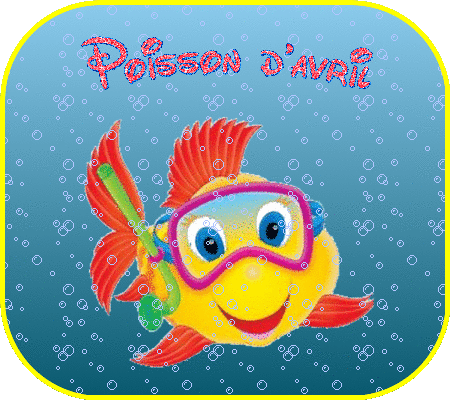
🐟 "Poisson d'Avril!" 🐠
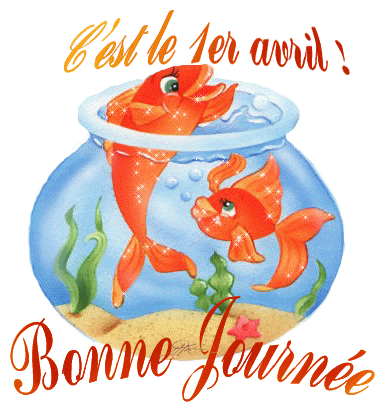


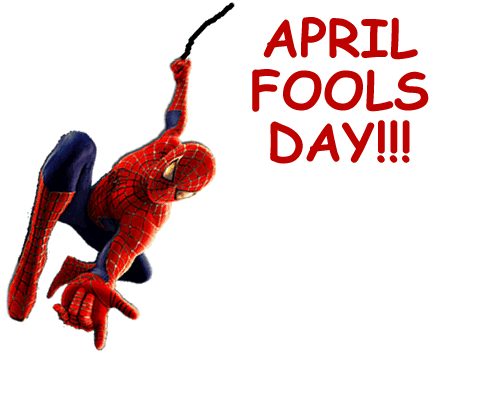
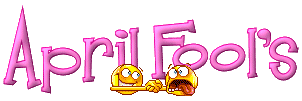
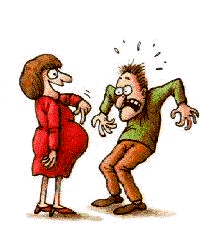


No comments:
Post a Comment